London; Royalty and Democracy
In London, the intertwining of royalty and democracy paints a complex tapestry that echoes the words of Shakespeare: ‘Uneasy lies the head that wears a crown.’
As the city stands as a testament to both regal splendor and democratic principles, one can’t help but ponder the intricate dance between these seemingly contrasting forces. How did London’s royal past shape its democratic present, and what lessons can be gleaned from the struggles of monarchs and the aspirations of the people?
Join this exploration of London’s dual identity, where the echoes of history beckon with tales of power, rebellion, and the enduring quest for balance.
Key Points
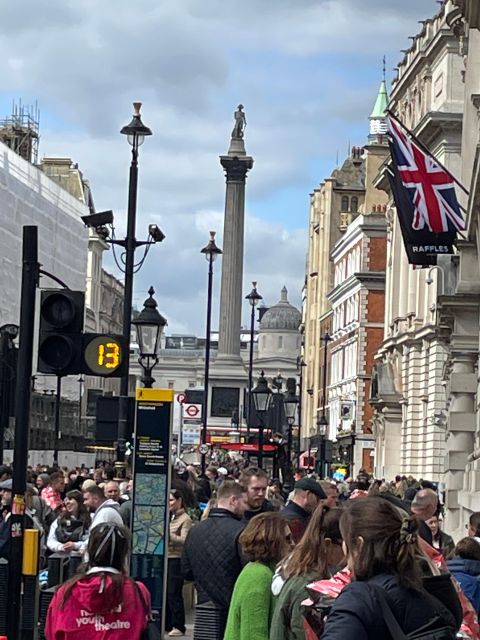
- Monarchs shaped London’s landscape and traditions over centuries.
- British monarchy influenced the transition to a democratic system.
- London’s democracy evolved through historical reforms and events.
- Charles I’s execution marked a significant shift towards constitutional monarchy.
Here's some more nearby activities we've reviewed
Historical Context of London
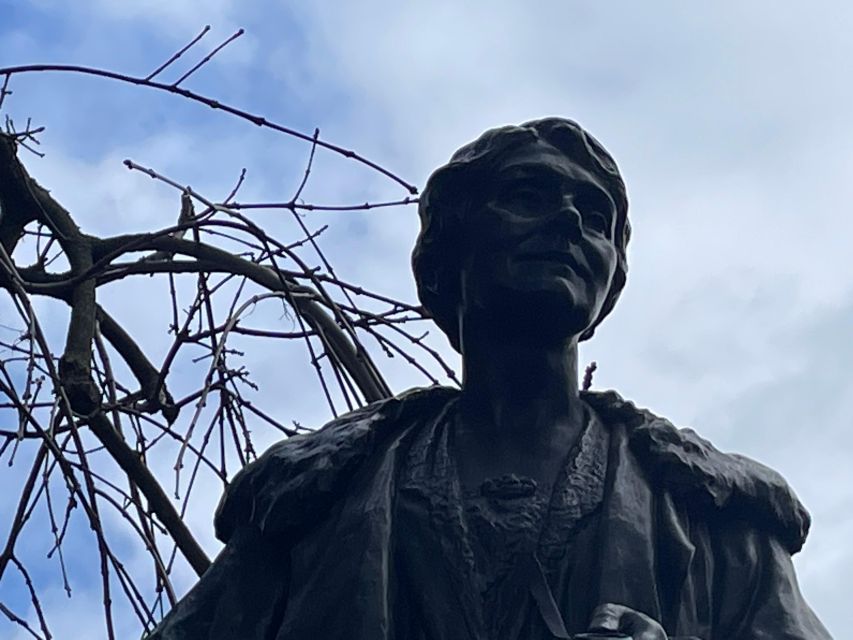
London’s historical context is a tapestry woven with threads of royalty and democracy, each thread contributing to the vibrant fabric of the city’s past. The legacy of royalty in London’s history is rich and profound. From the majestic castles to the intricate royal ceremonies, the presence of monarchs has left an indelible mark on the cityscape. The grandeur of Buckingham Palace, the historic Tower of London, and the iconic Westminster Abbey all stand as testaments to royalty’s influence on London.
Through centuries of reigns and dynasties, London has been shaped by the traditions and power struggles of its royal inhabitants. Understanding royalty’s legacy is essential to comprehending the intricate tapestry of London’s history.
Royalty’s Influence on British Democracy
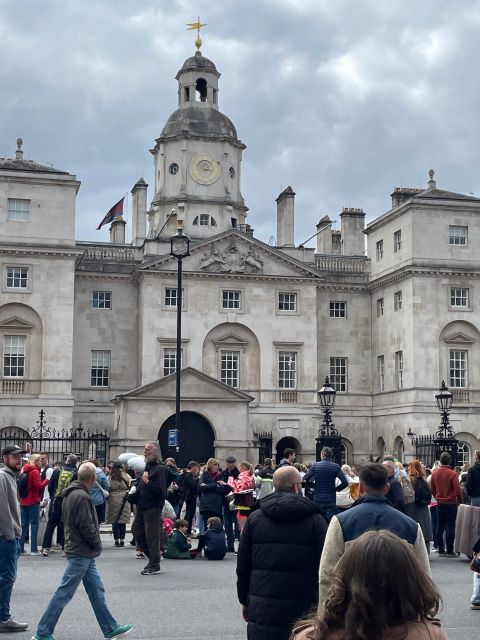
The intertwining of royalty and democracy in British history unveils a compelling narrative of power, influence, and societal evolution. The monarchy’s role in shaping British democracy has been significant, with both positive and negative impacts on democratic progress. While historically the monarchy held immense power and authority, over time, the influence of the crown has gradually diminished, allowing democratic principles to flourish. The table below highlights key aspects of the monarchy’s influence on British democracy.
| Monarchy’s Role | Democratic Progress | Impact on Legislation |
|---|---|---|
| Centralized power | Shift towards democracy | Royal Assent required |
| Constitutional monarchy | Expansion of voting rights | Prime Minister’s authority |
| Symbolic figurehead | Checks and balances | Influence on public opinion |
This dynamic relationship between royalty and democracy continues to shape the political landscape of the United Kingdom.
Evolution of Modern British Democracy
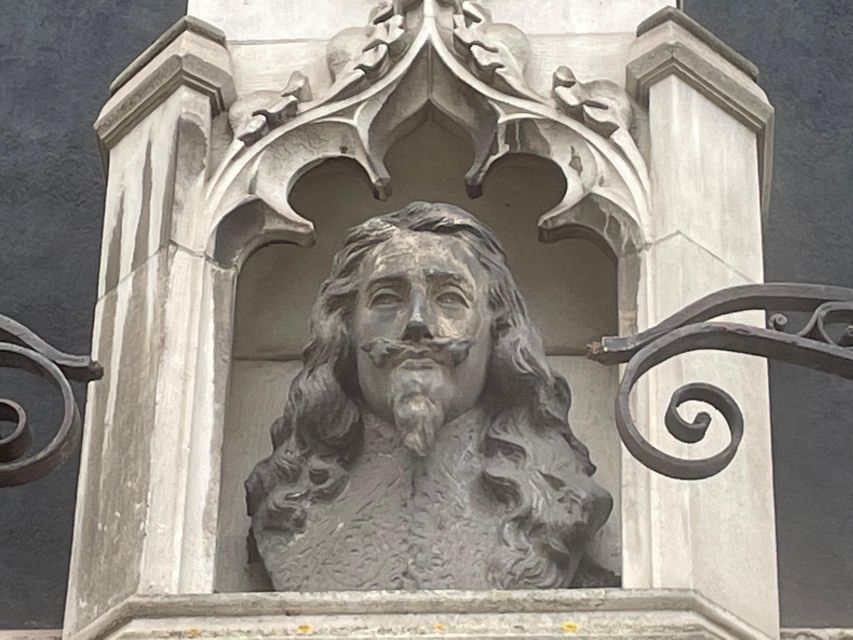
With each political reform and societal shift, the evolution of modern British democracy unfolds as a dynamic interplay between tradition and progress. From the political upheavals of the English Civil War to the Glorious Revolution of 1688, the landscape of British governance has been shaped by significant events that propelled democracy forward. As power dynamics shifted between the monarchy, parliament, and the people, a gradual evolution towards a more inclusive and representative system emerged.
The development of key democratic principles, such as the rule of law, individual rights, and parliamentary sovereignty, laid the foundation for modern British democracy. Through a series of reforms and adjustments over centuries, Britain has navigated the complexities of its history to establish a democratic framework that continues to adapt and evolve with the times.
Impact of Charles I’s Execution
As the fate of Charles I unfolded with his execution in 1649, a ripple effect on the course of British democracy began to emerge, marking a pivotal moment in the nation’s history.
The royal repercussions of Charles I’s execution reverberated throughout the monarchy, leading to a significant shift in the political landscape of Britain. His death not only symbolized the end of absolute monarchy but also sparked a series of events that shaped the political aftermath of his era.
The execution of Charles I played a crucial role in the hotel of modern British democracy, highlighting the power struggle between the monarchy and Parliament. This historic event laid the foundation for the constitutional monarchy and the principles of parliamentary sovereignty that continue to influence British politics to this day.
Exploring London’s Democratic Icons
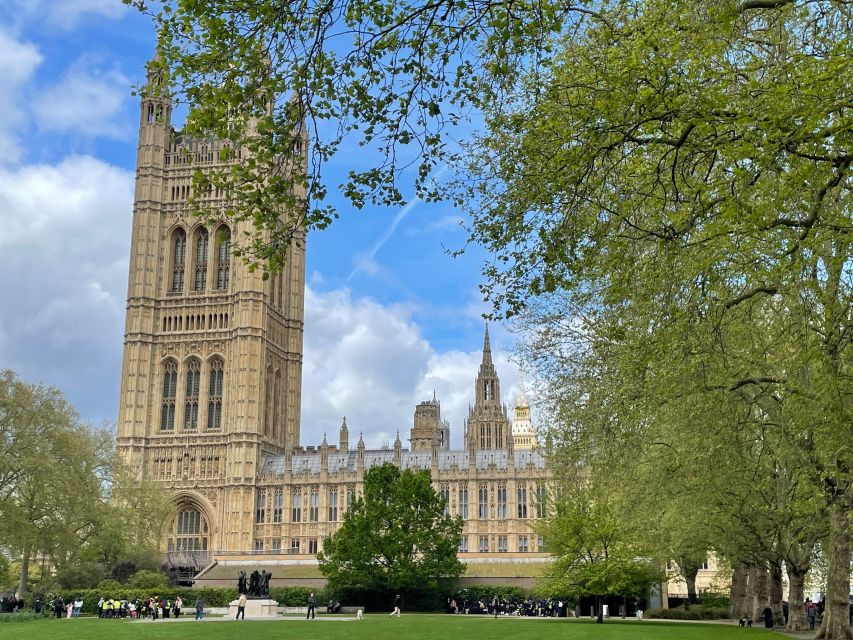
Exploring London’s democratic icons reveals a tapestry of history woven with threads of resilience and reform. From the towering Big Ben to the majestic Houses of Parliament, these iconic landmarks stand as testaments to the evolution of democracy in the heart of the city.
The Emmeline Pankhurst statue in Parliament Square serves as a powerful reminder of the suffragette movement and the fight for women’s rights. Nearby, the Winston Churchill statue stands tall, symbolizing the strength and resolve of the British people during challenging times.
As visitors stroll through London’s streets, they encounter a rich tapestry of democratic monuments that speak to the ongoing struggle for equality and justice in the UK.
Here's a few more nearby tours and experiences we have reviewed.
- London Eye River Cruise and Standard London Eye Ticket
- London by Night Sightseeing Tour – Open Top Bus
- The Beatles London Walk
- Private Sherlock Holmes Walking Tour in London
- Inner Circle Access of Stonehenge Including Bath and Lacock Day Tour From London
- White Cliffs of Dover and Canterbury Cathedral Tour From London
Common questions
What Specific Events in London Led to the Execution of Charles I in 1649?
Explore the causes and consequences of Charles I’s execution in 1649. Unravel the events that led to this historic moment and explore how it shaped modern British democracy. Discover the impact on iconic figures and historical sites.
How Did the Execution of Charles I Impact the Political Landscape of London and the Rest of Britain?
The execution of Charles I in 1649 had a profound impact on the monarchy and political landscape. It led to shifts in power dynamics, the rise of republicanism, and a reevaluation of the divine right of kings.
Are There Any Lesser-Known Figures or Events Related to the Creation of Modern British Democracy That Are Highlighted on This Tour?
Uncovering impactful individuals and hidden stories, the tour delves into lesser-known figures and events shaping modern British democracy. Participants explore the nuanced narratives beyond Charles I’s execution, offering a rich historical tapestry.
Can Participants Expect to Gain Insight Into the Social and Cultural Context of London During Charles I’s Reign Through This Tour?
Participants on this tour can gain insight into the social dynamics and cultural significance of London during Charles I’s reign. They will explore the era’s impact on British democracy, iconic figures, and historical sites, led by knowledgeable guides.
Are There Any Controversial or Debated Aspects Surrounding the Legacy of Charles I’s Execution That Are Discussed During the Tour?
Debates and controversies surrounding Charles I’s execution legacy are explored. Historical perspectives provide insight into its significance, impact, and implications. Tour participants engage in discussions on the debated aspects of this event, enriching their understanding of the era.
Here's more of our most recent tour reviews happening neaby
- Heathrow Airport To Finsbury London EC2A Private Transfer
- Magical London: Harry Potter Walking Tour
- Self Guided Tour of Londons Hidden Chocolate Shops
- London: Secrets of Southwark City Exploration Mobile Game
- London: Traditional Scone Making Workshop
- Private Transfer: From Lambeth to London Heathrow Airport
- London: Street Art Bike Tour
- Private Transfer: From Dorking to London Heathrow Airport.
- Private Transfer: From Bromley to London Heathrow Airport.
- Private Transfer: From Southwark to London Heathrow Airport.
- City of London: Fun Mobile Phone Treasure Hunt to a Pub!
Last Words
To sum it up, London’s rich history of royalty and democracy offers a fascinating glimpse into the evolution of British governance. From the dramatic events surrounding Charles I’s execution to the creation of modern democracy, this immersive tour provides a unique insight into the iconic figures and pivotal moments that shaped the UK.
Explore the democratic icons of London and walk in the footsteps of history to uncover the secrets of the past. Don’t miss out on this thought-provoking and enlightening experience!
More Great Things To Do Nearby